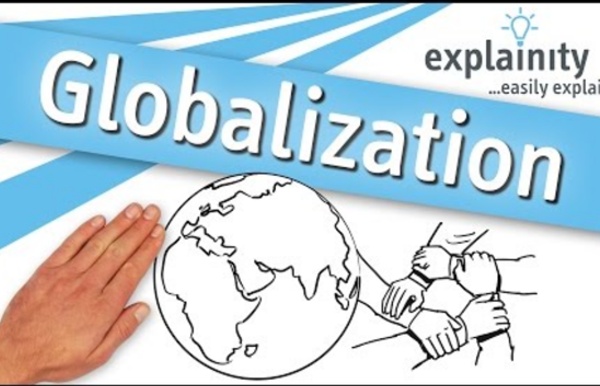



http://www.youtube.com/watch?v=JJ0nFD19eT8
Related: 3.9.3 Assessing internationalisation • globalization definition3.9.3 Managing in International Companies Managing in international companies takes a special breed of person. The reason for that is that not only do managers have to have an understanding of how to conduct business, but they also must deal with several other factors that are present in the international arena. Explore our library of over 10,000 lessons You now have full access to our lessons and courses, watch the lesson now or keep exploring. You've watched a video!
Classroom Activity: Globalization and Inequality Within and Between Countries – Duck of Minerva This activity comes after students are to have listened to a lecture (slides) on political economy, a considerable focus of which was on identifying the winners and losers from economic cooperation. In that lecture, I argued that trade tends to enrich the owners of, employees of, and investors in sectors in which that country has a comparative advantage, while it harms the owners of, employees of, and investors in all other sectors. One implication of this is that a shift from relatively low to high levels of global trade is that a small number of people in highly developed states should benefit while most workers in the developed world will be harmed, while the majority of the developing world should benefit. I give you that background because the latest classroom activity was designed make my students somewhat complicit in that outcome so they might better understand it.
3.9.3 - Brexit vote fails to put brake on bike company's new Welsh factory - Reshoring Britain’s manufacturers were only just recovering from the last downturn when the Brexit vote dealt a fresh blow to confidence, and the early signs are that the mere prospect of leaving the EU has hit demand for goods rolling off British production lines. Brave timing then for anyone to open a new factory, but that is just what a small British bike manufacturer has done. From this month, brightly coloured children’s Frog Bikes destined for stores around the UK and the rest of the world will be painstakingly assembled from 120 parts, packed up and shipped out from a brand new factory in Pontypool, south Wales. Until now, the bikes have been assembled in China using components from around the world. Now the company is “reshoring”, following the lead of other manufacturers in moving the bulk of their production back to the UK to get better control over lead times and quality.
This Week in OtherWords: May 8, 2013 - OtherWords This week in OtherWords, Jason Salzman makes the case against the Koch brothers’ potential purchase of the Los Angeles Times and other Tribune Media newspapers while Jim Hightower weighs in on the larger context behind the recent garment worker tragedy in Bangladesh. Here’s a clickable summary of all our latest commentaries and a link to our new cartoon. If you haven’t already subscribed to our weekly newsletter, please do. Turning Journalism into a Joke / Jason SalzmanObama’s serious comments about the value of journalism stand out as the Koch brothers consider buying the Los Angeles Times.Ohio’s Poorly Performing School Assessment / Chris SchilligTest scores don’t tell the whole story.Fighting the Foodopoly / Wenonah HauterOnly four gigantic companies process 80 percent of the beef we eat.Middle Eastern Re-Run / Donald KaulUnless you have something better that can replace a brutal regime like Assad’s government in Syria, what can you accomplish with military intervention?
3.9.3 Bartlett & Ghoshal International Strategies Bartlett and Ghoshal (1991) identified four distinct types of multinational corporations (MNCs), which are depicted in the image at the end of this article. These four types can be seen to illustrate, which strategic outlook MNCs have towards managing their subsidiaries, and how these MNCs balance the potential needs of global integration and global differentiation. Each MNC should ideally choose the strategic model that satisfies the needs of the environment, and chose the strategic model that will secure global competitiveness. What's globalisation got to do with me? Learning areas English Year 9 Hornby to repatriate Airfix manufacturing from China and India Hornby, the model train manufacturer that also owns Airfix, is to return some manufacturing from China and India to Britain, becoming the latest UK company to repatriate production because of rising wage costs in emerging markets. The toymaker's announcement was made as figures suggested that Britain's monthly exports to China have hit the £1bn level for the first time, amid signs that UK firms are diversifying away from the crisis-hit eurozone. Hornby said it would be producing a new Airfix range that does not require glue, to be known as Quickbuild, in Sussex. Its chairman, Roger Canham, told Sky News: "The economics of sourcing our products from China continue to be affected by the reducing availability of labour and increasing costs. In industrialised areas the minimum wage went up by around 15%, with wage inflation slightly ahead of that.
Types of globalisation Political globalisation Political globalisation refers to the amount of political co-operation that exists between different countries. This ties in with the belief that “umbrella” global organisations are better placed than individual states to prevent conflict. The League of Nations established after WW1 was certainly one of the pioneers in this.